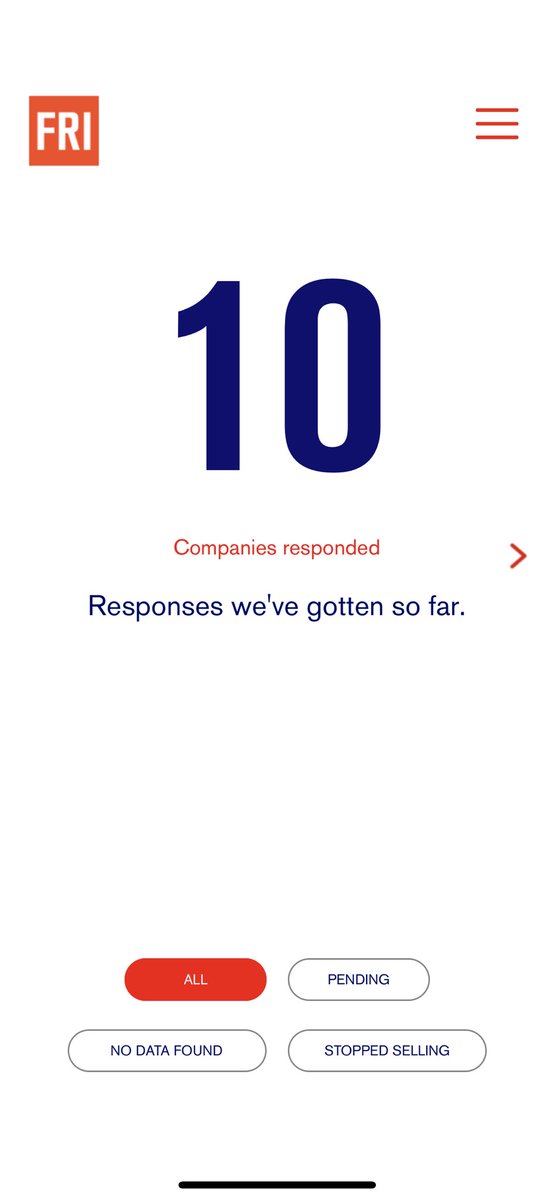
California’s latest data privacy law aims to switch privacy default settings from off to on for everyone by protecting minors. I prefer granting all people equal protections but the USA only has the political will to protect children from mass data abuse. nytimes.com/2022/09/15/bus…
California is also convinced of its own exceptionalism, that its rules drive the whole market, such as in auto emissions. But the CCPA/CPRA has not had the same effect in my view, as a person seeking expanded #DataRights without residing in California or the EU.
The exception to my critique of exceptionalism is that there is CCPA loophole that can be exploited for non-residents. Here is an app in beta (myfriday.io) that has so far pushed 10 obscure data brokers to respond to CCPA requests on my behalf. 







This app doesn’t show you your data (lame!) and you have to turn app tracking back on at the top level and only let this one get your identifiers while deflecting all the others (annoying!) Depending on how many data brokers it nukes over time tho; could be worth it.
There should not even be 4 companies with my device linked data because I religiously employ a VPN-level tracker blocker. So even the most privacy defensive zealots need many more tools to fight back against the data brokerages with every available weapon or shield.
But as I learned the hard way from the CA/SCL fiasco, doing data protection rights by loophole and cross-border regulatory arbitrage is not going to work out that well in the end.
• • •
Missing some Tweet in this thread? You can try to
force a refresh







